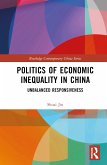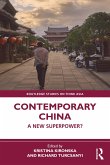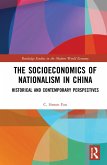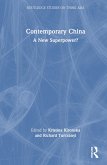Despite contrasting approaches, democratic and authoritarian governments all underline the fact that environmental protection is crucial and inevitable-and China's enthusiasm in stepping up its efforts to protect the environment has not gone unnoticed. This book highlights how the consensual orchestration of sustainability in China's biggest city, Shanghai, affects non-state actors' ways of perceiving, acting, and organizing around environmental issues.
China's Green Consensus examines grassroots realities as they intersect with events of everyday life, offering insights into areas that far transcend debates over coercive forms of environmentalism and exploring the "soft" and "green" facets of President Xi Jinping's authoritarian approach to governance. The importance of environmental protection in people's lives serves as a lens to analyze and understand authoritarian adaptations to environmental global phenomena. Arantes highlights how, through mobilization and (de)politicization, a "green" consensus leads to the displacement of state responsibilities and the cultivation of civil society in its own image. In so doing, she opens up new ways of thinking about the complexities of environmental governance, consensus politics, subject making, and citizenship in authoritarian contexts.
This book will be of interest to scholars and students of Chinese society and politics, environmental politics, political ecology, international relations, and urbanization in Asia, as well as all others interested in the rising appeal of authoritarianism around the globe.
China's Green Consensus examines grassroots realities as they intersect with events of everyday life, offering insights into areas that far transcend debates over coercive forms of environmentalism and exploring the "soft" and "green" facets of President Xi Jinping's authoritarian approach to governance. The importance of environmental protection in people's lives serves as a lens to analyze and understand authoritarian adaptations to environmental global phenomena. Arantes highlights how, through mobilization and (de)politicization, a "green" consensus leads to the displacement of state responsibilities and the cultivation of civil society in its own image. In so doing, she opens up new ways of thinking about the complexities of environmental governance, consensus politics, subject making, and citizenship in authoritarian contexts.
This book will be of interest to scholars and students of Chinese society and politics, environmental politics, political ecology, international relations, and urbanization in Asia, as well as all others interested in the rising appeal of authoritarianism around the globe.








